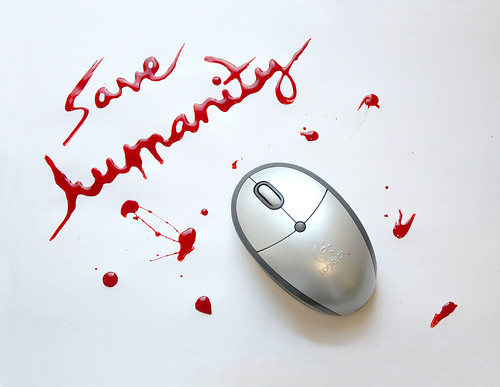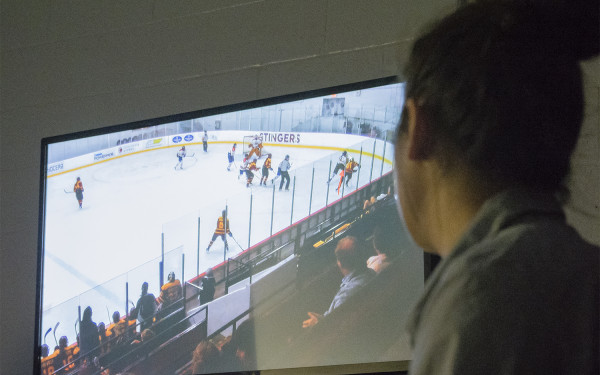Defining our humanity in a technological age
FREDERICTON (CUP)—How long would it take a monkey on a typewriter to produce the complete works of Shakespeare? Presumably long enough for any of his progeny to evolve into Shakespeare.
But what if the monkey were replaced with the legendary Google code and a lot of humans on the Internet?
Here’s another one: In a library of libraries does the book of books exist? While classical thinkers used this as proof that God or the universe is necessary, some modern computer scientists would like to argue that it is proof that computational methods can, in theory, solve every possible problem, provided we could muster the processing power.
Now there’s an interesting thought.
But what does it mean for science, for humanity?
Has the Information Age exhausted or infinitely expanded possibility? Let us take God, as an example. God is omnipotent, omnipresent and omniscient. He can answer any question, solve any problem. As Augustine put it: “With God, all things are possible.”
To me, this is starting to sound a lot like Google.
Could it be that Google is the onset of a great “God-project” we’ve undertaken by utilizing the collective consciousness of humankind? Think about it: Google in principle, as a symbol, represents omni-information. Not only can it answer any question, but if you play 20 questions with it, it seems it can even read our minds!
Could it be that Google is the evolving mind of God? I would love to ask God to confirm on Facebook, but it’s hard to tell him apart from the idiots online who pretend to be him. I’m guessing, for now, that Heaven and Hell aren’t connected, or that they aren’t allowed to share information with the lower world.
I mean, just picture standing in front of a God-computer that told you you’d wave in the next 10 minutes. Oedipus would be furious: “I so won’t!”
The Matrix projects a vision of a world where a theory of consciousness and corresponding technology can produce any kind of experience. In this fictional world, souls can live on forever by preserving themselves in the “Downloads” folder of self-sustaining cognitive engines to escape, or even prevent, the cold death of the universe.
Still, I always thought a theory of consciousness was question-begging: “Am I a butterfly in a dream or a butterfly dreaming?”
If we could simulate anything—i.e., have such a theory and eat it too—then the facing mirrors would be infinite; the brains in vats would be endless, if you catch my flow. After watching Inception, I’m thinking perhaps Christopher Nolan has the answer.
In my boredom, I have compiled a list of some of the stupid questions I would ask a God-computer, among them: Which came first, the chicken or the egg? Can a strongman able to lift twice his weight lift himself? Is there such a thing as a point in space? Am I wasting my time asking these questions?
More interesting to me is the question of the scientific and human consequences of technology as we struggle to define ourselves as not machines or computers, which, I think, is becoming more and more difficult since we’re so helpless without them.
The problem with modernity is precisely the “moronism” our ignorance of technology combined with our initial self-ignorance entails. It seems to me as if the more we depend on machines, the more we become machines, and the more machines come to replace us in our various life-functions.
Is man irreducible or a process of mechanical functions? Will the very empirical science that produces simulation devices be replaced by simulations? Will even art and genius be replaced by the art and genius of Google?
Just remember that for every question Google—the ever-expanding library of libraries—has an answer, unless nothing will satisfy you. But I guess for now the speed of light is the limit.
This article originally appeared in Volume 31, Issue 09, published October 12, 2010.





_600_375_90_s_c1.jpg)
_600_375_90_s_c1.jpg)
